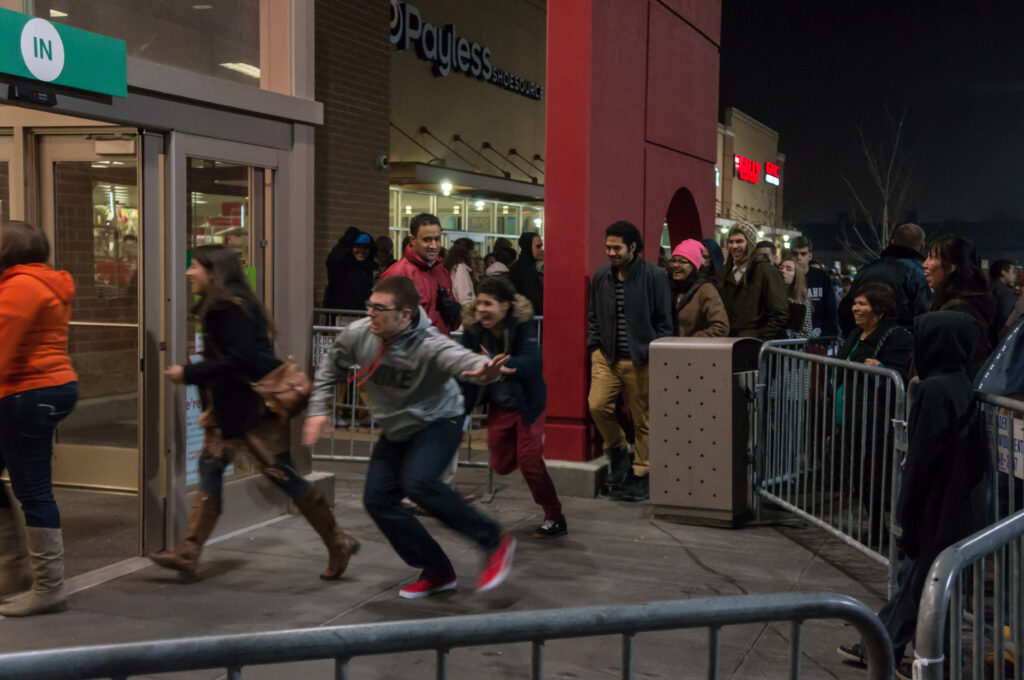
Setting the scene: Gray November skies, seasonal blues at full volume. This Friday: Black. There’s no escaping the loud advertisements in the shop windows, at bus stations, in every mailbox and inbox. They all proclaim that this Friday, the one after Thanksgiving, is the time to start shopping. Even if your country, like Germany, doesn’t celebrate Thanksgiving. Black Friday, consumer culture’s biggest holiday, is one very successful American export. Yet, how we currently view success might not be in tune with the successful continuance of humanity or even a habitable planet earth.
In the words of one of the most successful German exports, love-it-or-leave-it rock band Rammstein: “We’re all living in Amerika.” That’s sure what it feels like when Black Friday becomes Black Week and Cyber Monday becomes Cyber Week. Before anyone cries hypocrisy, there’s a reason why the U.S. is ‘the’ symbol for mass production, mass consumption, and the glorification of neoliberal capitalism in general. Therefore, it should come as no surprise that Black Friday started in Philadelphia in the 1950s, according to CNN Money:
Along with the cheesesteak and the hoagie, the term Black Friday is rooted in Philadelphia. In the 1950s, police in The City of Brotherly Love used the term to describe the horde of shoppers from the suburbs that descended into the city for the days after Thanksgiving, according to Bonnie Taylor-Blake, a neuroscience researcher at the University of North Carolina. The city promoted big sales and decorations, ahead of the Army/Navy football game on Saturday.
‘It was a double whammy. Traffic cops were required to work 12-hour shifts, no one could take off and people would flood the sidewalks, parking lots and streets. The cops had to deal with it all and coined the term.’
The main issue today is that everyone everywhere tends to buy into the story that fosters shopping on Black Friday. More is better, less is worse. It’s better (for us) to produce more and to buy more. All is well if industry and economy grow, even if we don’t know to what end. Actually, we do know what’s going to end: natural resources. And the ability of the blue planet to compensate for human activity.
It’s a vexing conundrum: What makes Black Friday such a universal export hit – driving the whole frenzy – is an irrational, abstract fear of less. This is not fear of imminent loss, but rather dread of missing out in the future (FoMo).
We are in the midst of a climate catastrophe and all kinds of wars for resources: Forests burn, homes are flooded, species go extinct, and all of it at a rate beyond what humanity has ever lived through. That’s why we need to seriously reflect on how to treat Black Friday. Whether we buy something we needed anyhow at a reduced price or not, next week is neither here nor there. But it’s pretty important to think about what kind of world we would like to live in now and in the future. Definitions of success, fulfillment, and safety are far too precious to be dictated by capitalist manifestos in billboard format. So the question remains: What does abundance actually look like to you?
6,890 Total Views, 5 Views Today






